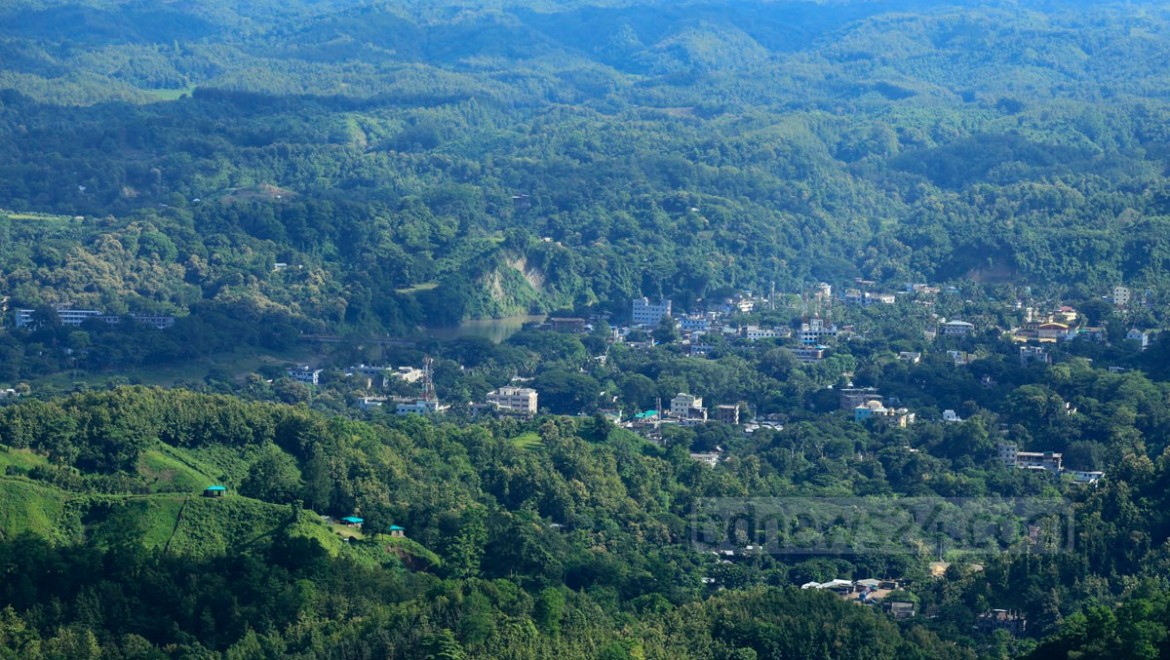Afsan Chowdhury
Death by bullets and swords are few compared to deaths by starvation caused by famine. In Bengal alone, 17 million estimated people have died since 1770 and we have not even remembered them. No death figure in the regional history comes even close to that. The enemy didn’t come with guns but bad policy and neglect. Bangladesh claims that it has banished famine and starvation. That is what we thought was the case with the end of Monga in Rangpur. But Bandarban is starving now and very little help has been extended. In silence and cloaked in invisibility, hunger and starvation is causing incredible suffering.
It was only yesterday that we heard of 4.6 metric tons of rice being sent. We don’t know how much has actually reached the place, and how much has been distributed and when. Barring a few stray media reports, nothing has been seen. We need to act, and quickly, before even one death is caused. It’s not an urgent or emergency situation. That stage has been passed long ago, and starvation looms.
It’s a fact that we no longer have large scale famines, but we do have several kinds of food and nutrition shortages, often described as hidden hunger. What we don’t have is calorie/cereal shortage. So what is happening at Thanchii is very disturbing because it means the capacity of calorie hunger to return still remains. It’s a reminder that the phenomenon of pocket famine definitely exists. And if that exists, even large scale famines can happen.
Obviously, the government’s hunger monitoring system is weak and the present episode is an embarrassing example of its competence. The CHT doesn’t have any shortage of official persons of all kinds. So how this managed to pass through the cracks of their surveillance is surprising and damaging to the official image. It’s also a long term threat to life and health, particularly of women and children, as starvation not only impacts on children but pregnant women too. Future children will not escape the bane of starvation either. It’s not just food that needs to go there but medical assistance and long term care packages for the vulnerable people.
How the area escaped official attention for so long remains a matter of serious concern. The decision of the Government to ship rice there has come very late and it isn’t understood why, unless the authorities just didn’t bother seriously enough. The vulnerability of the CHT is well known and Bangladesh spends millions to secure military safety. Yet despite having such a military and civil presence, the area escaped all eyes. This is not acceptable, though one supposes nothing is going to happen. But it doesn’t look good on security managers either, because insurgents can hide much more easily than famine affected areas. If the government can’t do its job, it can always ask NGOs who have good experience in this sector for help. Much better than letting people starve.
But the Government also seems uninterested, because it is making a lot of noise in sending relief to disaster affected Sri Lanka by plane, but has not yet been able to reach Bandarban by boat. It seems to have been quite unaware of the Bandarban situation till now and appear to be reacting in an ad-hoc manner. But if it can afford to send planes to Sri Lanka, why can’t it send a helicopter to Bandarban? Saying that a full river is preventing the rice from reaching the destination is a seriously absurd excuse. One knows that criticism doesn’t affect the government at all, but the political need for national unity is important for everyone, including the present government. The government shouldn’t be seen as one which cares more about its SAARC image than it does about its image within the country.
Two more pieces of news are disturbing. It seems that the area has been vulnerable to famine for a while, and WFP had established “rice banks” in the area, according to media reports. Several other programes were in operation, but famine still hit the area. Questions are now being asked about whether the anti-famine steps were adequate or not, and whether there had been pilferage and incompetence in the interventions that led to the present situation.
The other news is that, this condition will last till October so it’s not a one shot rice drop affair. These people need to be looked after till the condition improves and food is available from agriculture.
It’s obvious that Thanchi has suffered great neglect. Some people have also been making racist comments about the sufferers. The passive silence of the government and the obvious neglect of the authorities has encouraged them.
The priority is to save the people of Thanchi through immediate action. The GOB must ensure food supply to Thanchi till harvest come in in October, and take steps to ensure that this never happens again. Otherwise, the starvation will increasingly look like it was caused not just by natural conditions but deliberate negligence of the suffering of its own people.
Source: bdnews24










